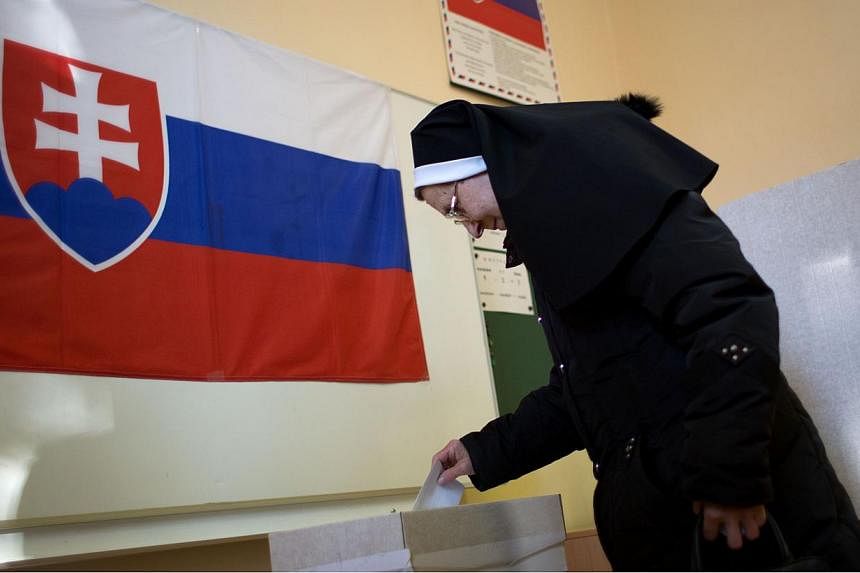Ontario was thrown into an uproar recently when officials presented the first changes to the Canadian province's sex education curriculum since 1998. Starting in autumn, second graders will learn about "saying no" and "improper touching"; third graders will be introduced to gender identity and sexual orientation; and seventh graders will learn of the dangers of "sexting" and of sexually transmitted diseases.
The Reverend Charles McVety, an evangelical minister, has led the charge against the new curriculum, calling it "sexually explicit and radical thinking" and a form of indoctrination.
But if you visit the Facebook page for Parents Against Ontario Sex-Ed Curriculum, you'll find that it is populated less by white conservative Canadians like Rev McVety than by minorities like Mr Feras Marish, who helped start the page.
Mr Marish, a Muslim immigrant from Kuwait, told reporters that in his community, sexual relationships outside marriage are frowned upon, "but now, all of a sudden, it's being heavily promoted by schools". Chinese- and Filipino-Canadians have signed on to his group's message: "I preserve my right to raise my children following my cultural and religious beliefs, and the curriculum compromises my rights." Enthusiasts of globalisation often confuse it with liberalisation. As people and ideas move around the world, the argument goes, ideals of individual liberty will replace the strictures of inherited tradition.
The story of sex education suggests otherwise. Globalisation has served to curtail rather than expand school-based sexual instruction. The more the world has become interconnected, the more sex ed has come under attack.
Sex education in the United States dates from the Progressive Era, when groups like the American Social Hygiene Association promoted education as a route to eradicating venereal disease and prostitution. (John D. Rockefeller Jr. was a strong proponent.)
Practices across the world varied widely; the early Soviet Union embraced relatively libertine sex education, viewing traditional propriety as a form of bourgeois pretension, but in Mexico, the Roman Catholic Church led efforts to block nearly all attempts to teach human sexuality in schools.
What's distinctive in the past three decades is that immigrants have joined native-born conservatives across the Western world to restrict these public health teachings. As early as 1983, white conservatives in New Zealand warned that sex education would alienate Maori populations as well as Asian immigrants. This new alliance against sex education went global in 1994, when the International Conference on Population and Development in Cairo enshrined "reproductive rights" as a goal. "Information and services should be made available to adolescents to help them understand their sexuality," it declared.
The backlash was immediate.
Egypt, the host of the conference, joined four other Muslim countries in dissenting, saying the ruling "could be interpreted as applying to sexual relations outside of marriage", as an Iranian delegate explained.
Two mainly Catholic countries, El Salvador and Guatemala, also dissented, as did the team from the Vatican, which sent a papal envoy to Iran to coordinate opposition to the conference's liberal ethos on sexuality.
Even Ms Benazir Bhutto, then Prime Minister of Pakistan, and a cosmopolitan with degrees from Harvard and Oxford, offered a rebuke, saying: "This conference must not be viewed by the teeming masses of the world as a universal social charter seeking to impose adultery, abortion, sex education and other such matters on individuals, societies and religions, which have their own social ethos." These tensions have played out in immigrant-heavy societies in recent years.
In the Netherlands, native- born Pentecostals and newcomers from Morocco and elsewhere have repeatedly attacked the country's famously liberal sex education curriculum. "It is ironic that public sex education became acceptable in the Netherlands at the same time as large groups of Muslim immigrants, with ideals of modesty and obligatory innocence, became resident in the country," a Dutch historian noted in 2003.
In 2007, British Muslim representatives condemned sex education for promoting adultery and homosexuality, with help from a Conservative Party leader who pointed to the "natural ties of friendship, common outlook and values" between Muslim immigrants and his party.
In 2009, when Unesco released sex education guidelines that included information on masturbation and contraception, American conservatives called them "culturally insensitive" to minorities.
"It's a kind of one-size-fits-all approach that's damaging to cultures, religions and to children," one abortion opponent warned.
Sex educators say young people are sexual actors, no matter their culture, so schools should help them "make choices" about their bodies. But millions of people see their culture as a bulwark against sex among young people, who should have no choice in the matter.
That's why schools everywhere should proceed with caution. To be clear, no credible research supports the claim that sex education makes young people more likely to engage in sex. But we don't have strong evidence that it consistently reduces teen pregnancy or venereal disease rates, either.
We do know adolescents get most of their sexual ideas from mass media - and from one another - rather than from schools. So the most promising interventions involve out-of-school peer counselling or text-chat services like ICYC (In Case You're Curious) and websites like Sexetc.org, which allow teens to gather information free from adult scrutiny.
In an age of globalisation, in fact, schools are probably the least likely places for kids to learn about sex. Schools are central for deliberating the values we wish to transmit to our young. But on the subject of sex, we disagree too fundamentally to arrive at anything like a consensus about what adolescents should learn, know and become.
NEW YORK TIMES

